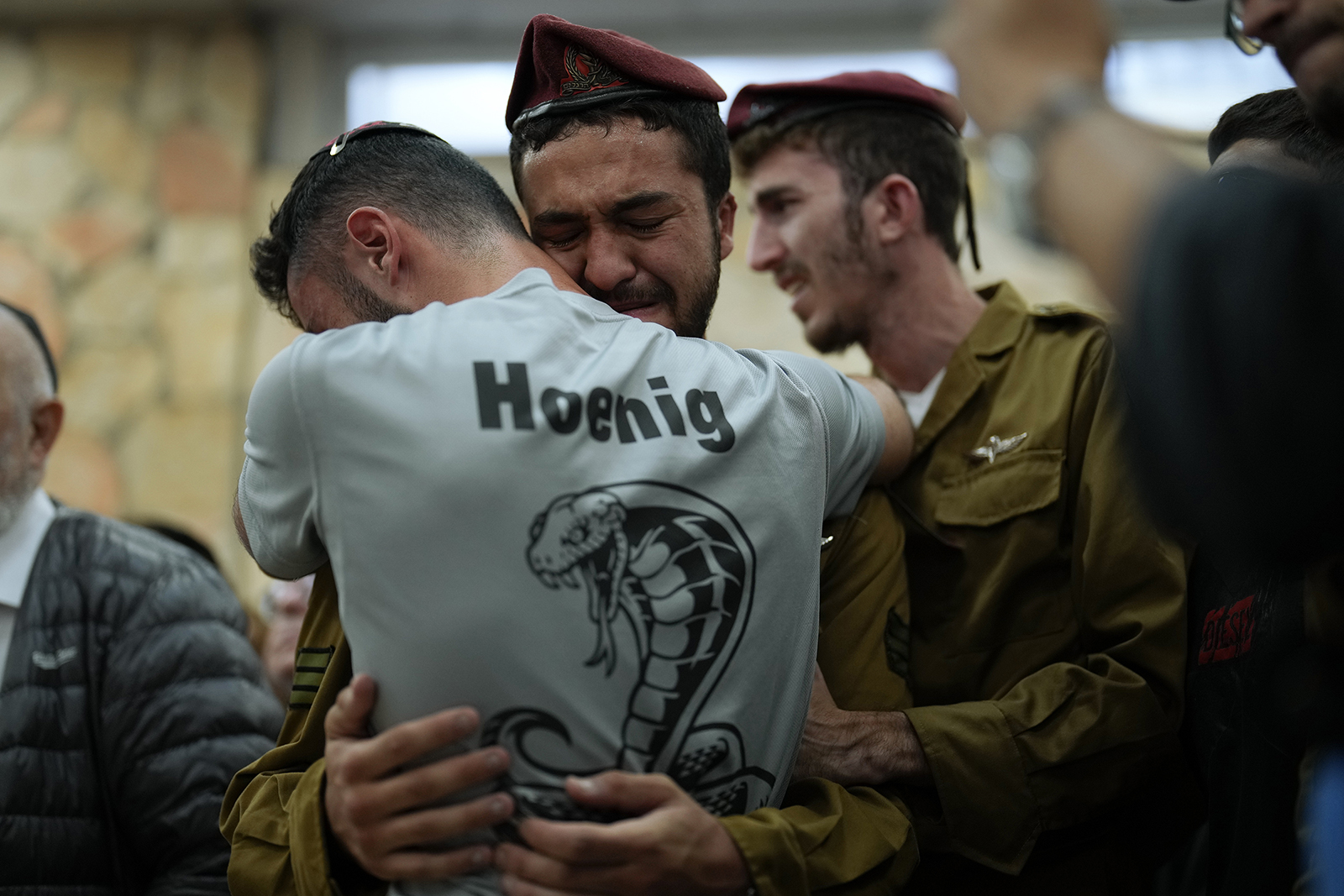(RNS) — Over the past five decades, the 1973 Yom Kippur War, when Egypt and Syria invaded Israel on the holiest day of the Jewish year, was seen as the most traumatic episode in a recent Jewish history full of them. Until this past weekend.
In what Hamas must have intended as a historical parallel, the jihadist group ruling Gaza chose another Jewish holiday, Simchat Torah, for what has become a new level of carnage.
But this assault strains parallels with what happened 50 years ago. The October 1973 war, launched by strong conventional militaries, may have posed more of an obvious existential threat to Israel. The current attack, though, has been unprecedented in its scope and barbarism, targeting civilians with mass hostage-taking, torture, apparent rape and slaughter.
“There are moments in this life, and I mean this literally, when the pure unadulterated evil is unleashed on this world. The people of Israel lived through one such moment this weekend,” President Joe Biden said Tuesday (Oct. 10).
With the determined patronage of a state sponsor, Iran, nonstate extremists, whether Hamas and Islamic Jihad in the Palestinian territories or Hezbollah in Lebanon, have reached military caliber in all but name.
In just the first day or so of Hamas’ onslaught, at least 900 Israelis, overwhelmingly civilians, were murdered, and reportedly some 150 — including children, women and the elderly — were abducted, some smuggled to Gaza, where they were immediately paraded and humiliated publicly. Saturday alone saw the bloodiest massacre of Jews since the Holocaust.

Mourners comfort each other during the funeral of Israeli soldier Benjamin Loeb, a dual Israeli-French citizen, in Jerusalem, Oct. 10, 2023. Loeb was killed on Saturday as the militant Hamas rulers of the Gaza Strip carried out an unprecedented, multifront attack on Israel. (AP Photo/Francisco Seco)
Analogies even to seminal events like Pearl Harbor fall short. Many do not recognize how small Israel is. In a country of fewer than 10 million people — barely the size of New Jersey — the losses are profound and the sense of vulnerability well-founded. The enemy demands not limited territorial or political goals but the destruction of the “Zionist entity” completely.
Yet the terrorists are what they are. They aim for maximal loss of life by attacking, and now holding, Israeli civilians from among Palestinian civilians. Having now proved themselves to be similar in ideology, ambition and methods to the Islamic State group, also known as ISIS, one wonders what more Hamas terrorists could do to be described as such rather than the sanitized moniker “militants.”
The mislabeling of the perpetrators relates to how we move forward. Too many pundits are likely to revert to shallow slogans calling for Israel to respond “proportionally” — a meaningless prescription after a disabled Holocaust survivor was forcibly wheeled into Gaza and 260 mostly young people were butchered at a desert music festival. Some politicians or activists will also call to end “the occupation” and simply erect a Palestinian state.
But over the past 75 years, Israel has repeatedly offered Palestinian statehood. In 2000 and 2008, Israeli Prime Ministers Ehud Barak and Ehud Olmert offered the Palestinian Authority nearly 100% of what it demanded in peace negotiations. In 2005, Prime Minister Ariel Sharon unilaterally and completely withdrew Israel from Gaza.
The Palestinians answered by refusing to negotiate, empowering radicals and continually intensifying violence. Israel has suffered unending missile barrages and hostage-taking via underground tunnels.
To be clear: Israel has eagerly formalized peace with every willing Arab partner — including Egypt, Jordan, the United Arab Emirates, Bahrain and Morocco, not to speak of non-Arab Muslim states. But regional “revolutionaries,” led by Iran, are ideologically committed to preventing progress toward stability and peace. That regime, then-Chairman of the Joint Chiefs of Staff Gen. Mark Milley recently said, may be as little as two weeks away from enough fissile material for a nuclear bomb.
Responsibility for the current state of affairs belongs chiefly to Hamas, which actively worked to thwart Palestinian-Israeli reconciliation through waves of suicide bombings after the Oslo Accords in the 1990s. It is no coincidence that the group has perpetrated the deadliest bloodletting in Arab-Israeli history precisely as Israel and Saudi Arabia have been actively discussing a historic peace.
If Arabs and Israelis alike are ever to be freed from the tyranny of the fanatics, the international community must approach this moment with moral clarity. There is no equivalence between terrorists and the only democracy in the Middle East, in Jews’ only ancestral homeland.
(David Michaels is director of United Nations and intercommunal affairs at B’nai B’rith International. The views expressed in this commentary do not necessarily reflect those of Religion News Service.)





